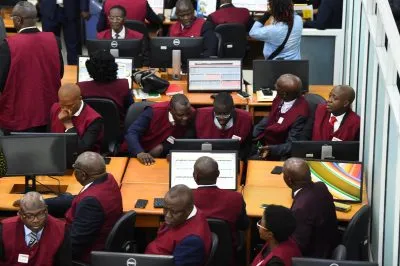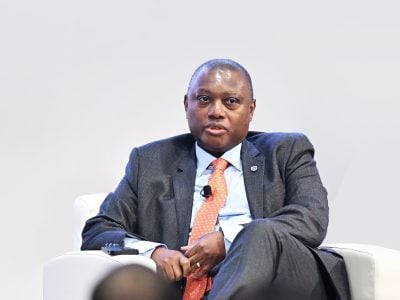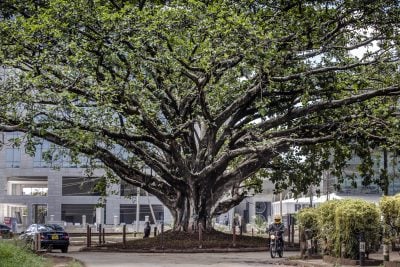The riddle of development has occupied the thinking of both academics and public servants for at least the last century. Thinkers as diverse as Jeffrey Sachs, Paul Collier, Joseph Stiglitz, Dambisa Moyo and Ha-Joon Chang have been among those to put forward their unique analyses of both the root causes and the possible remedies of under-development.
Joining this esteemed group of thinkers with his riveting new book Gambling on Development: Why Some Countries Win and Others Lose is Stefan Dercon, professor of economic policy at the Blavatnik School of Government and the Economics Department at the University of Oxford.
What factors drive growth?
The Belgian-British economist presents four main propositions. Proposition 1 holds that: “Countries and people are poor because they are poorly endowed”; proposition 2 holds that “Market failures are costly for poor people and may trap them in poverty”; proposition 3 holds that “Growth traps stem from market failures that are costly for poor countries”; and proposition 4 holds that: “Growth traps stem from failures in states and their governance”.
“There is no doubt that among all the plausible factors driving growth under propositions 3 and 4, many are likely to have been true at the same time,” Dercon writes.
“Which ones matter most has long been the main differentiating factor. The problem is that researching growth empirically across countries is difficult, and many bun fights are still breaking out over which approaches are acceptable and whether any of this work reaches the standards required for science.”
And really, this is the crux of the book.
Dercon’s conclusion is that there is no “cookie cutter”, one-size-fits-all answer to the development conundrum.
The author can speak with authority. In a long and distinguished career, working at the coalface of international development, he has travelled the world and witnessed the many ways that different countries go about attempting to eliminate poverty and stimulate economic growth. A former chief economist and policy advisor to the UK’s foreign secretary, he is uniquely positioned to comment on types of economic policies that different countries have followed in their quest for growth.
The narrative winds through Ebola in Sierra Leone, corruption scandals and maize market mismanagement in Malawi, beer factories in the Democratic Republic of Congo (DRC), constitutional reform in Kenya, relief programmes behind enemy lines in South Sudan, business meetings in Somaliland, and the unlikely success of growth in Ethiopia.
The author says: “When I wrote this book, Covid-19 was ravaging the economies and societies of poor and rich countries alike. What would happen next was uncertain, but what was certain was that political leadership worldwide would be tested for a long time to come.
“Leaders in better-off countries were invariably using terms invoking what had been lost, promising to ‘build back’, albeit ‘better’.
“For some of the fastest-growing economies in recent times such as China and India, as well as Ethiopia, Rwanda, Bangladesh, and Ghana, the general tenor was about the need to find ways to resurrect their earlier fast growth and strides in development.”
Depressing times
Dercon admits that in the late 1980s and 1990s it had been “especially depressing for those of us working in and on Africa”.
But by the turn of the new millennium, it appeared that Africa was turning a corner; that the continent was at last finding a stability that could transform its economic prospects.
One particular chapter “Not enough oil, not enough diamonds”, is particularly illuminating, analysing underdevelopment in two of Africa’s most important countries – Nigeria and the DRC.
The former, is of course, almost synonymously linked to the oil reserves it possesses. As Dercon puts it: “it’s as though Nigeria doesn’t make anything else that the world finds worth buying, despite its entrepreneurship”.
He also despairs of the fact that although Nigeria is considerably wealthier in resources than other African countries, many of its social indicators are woefully lower. The levels of extreme poverty, for example, are desperate; and infant mortality measurements are similarly distressing.
Dercon says that the rate at which infants die before they reach the age of one year in Nigeria is twice that of Kenya, Uganda, and Ghana. Nigeria’s circumstances illustrate one of the author’s key observations – that, in order for a country to develop, its elite must make a bargain between protecting their own interests and the pursuit of economic progress.
Dercon believes that for a development bargain to work, it must “have three features in common: (1) the politics of the bargain favouring development are real and credible, not just some vague official statement or pronouncement; (2) the capabilities of the state are used to achieve the goals of the bargain, but, importantly, the state avoids doing more than it can handle; and (3) the state possesses a political and technical ability to learn from mistakes and correct course.”
A new dawn?
Whether Nigeria can achieve these preconditions is open to question. However, there is some hope that as new generations take power, the old systems of governance and those periods of economic growth and decline or stagnation coinciding with oil prices and production will give way to a more progressive and stable political environment.
The same hope applies to Africa’s sleeping giant – the DRC. The country has had a painful history of exploitation and kleptocracy that Dercon outlines, beginning with King Leopold’s brutal colonial era, through to Mobutu Sese Seku’s pillage of the state.
“Corruption,” Dercon observes, “whether petty or large-scale, is an existential part of the state that Mobutu built up and that still broadly exists: it is required for the elite bargain to continue to exist.”
Nevertheless, the author asserts: “Still, some local governments are apparently trying to achieve functional services, pay salaries properly, and maintain reasonable health services. The data, impressions, and anecdotes suggest that the DRC is not going further down the drain.
“The economy has stabilised, and growth has been decent, albeit from extremely low levels. Still, this country is clearly not on the path to development or peace. For that, the change has been far too little.”
Motives and challenges
The author talks of what drove him to pen this book. “This was a book I had to write,” Dercon tells us. “Much of the material evolved over many years via numerous presentations to students, fellow academics, development experts, public servants or just interested listeners, and across four continents.”
But after Dercon set out to write this book, a new challenge – that of the Covid-19 pandemic – emerged. The book deals in some detail with how it and the global response to climate change will probably impact Africa’s development trajectory.
However, the book predates the Ukraine crisis. The fact that 35 African countries were dependent on food – wheat, maize and sunflower oil – imported from the Black Sea region will also have huge consequences for the continent’s economic and social progress.
This fascinating book is a worthy addition to the canon of development literature, but as with the new circumstances constantly arising, the debate will run on and on.
Want to continue reading? Subscribe today.
You've read all your free articles for this month! Subscribe now to enjoy full access to our content.
Digital Monthly
£8.00 / month
Receive full unlimited access to our articles, opinions, podcasts and more.
Digital Yearly
£70.00 / year
Our best value offer - save £26 and gain access to all of our digital content for an entire year!
 Sign in with Google
Sign in with Google 



